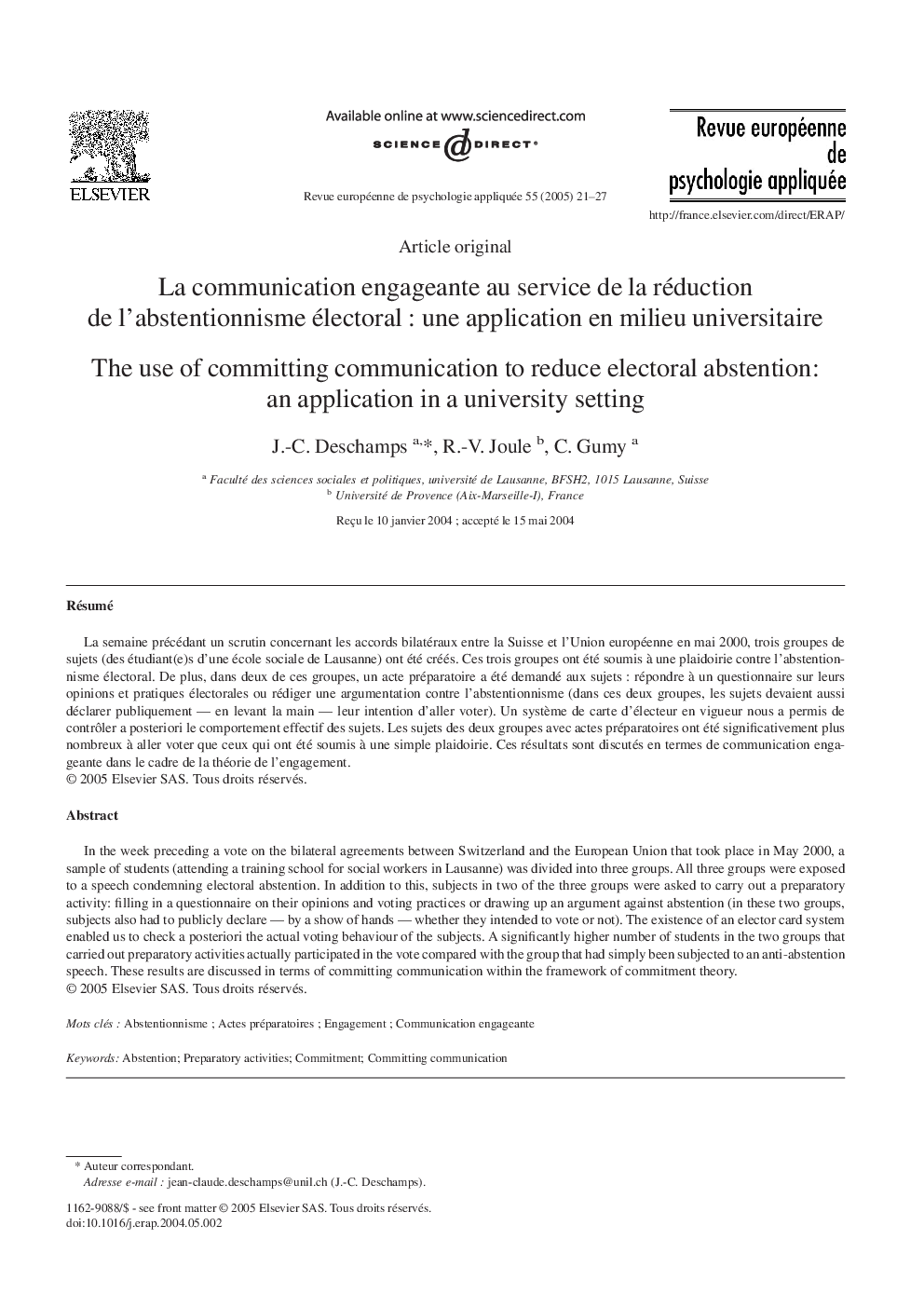| Article ID | Journal | Published Year | Pages | File Type |
|---|---|---|---|---|
| 10442462 | Revue Européenne de Psychologie Appliquée/European Review of Applied Psychology | 2005 | 7 Pages |
Abstract
In the week preceding a vote on the bilateral agreements between Switzerland and the European Union that took place in May 2000, a sample of students (attending a training school for social workers in Lausanne) was divided into three groups. All three groups were exposed to a speech condemning electoral abstention. In addition to this, subjects in two of the three groups were asked to carry out a preparatory activity: filling in a questionnaire on their opinions and voting practices or drawing up an argument against abstention (in these two groups, subjects also had to publicly declare - by a show of hands - whether they intended to vote or not). The existence of an elector card system enabled us to check a posteriori the actual voting behaviour of the subjects. A significantly higher number of students in the two groups that carried out preparatory activities actually participated in the vote compared with the group that had simply been subjected to an anti-abstention speech. These results are discussed in terms of committing communication within the framework of commitment theory.
Keywords
Related Topics
Social Sciences and Humanities
Psychology
Applied Psychology
Authors
J.-C. Deschamps, R.-V. Joule, C. Gumy,
